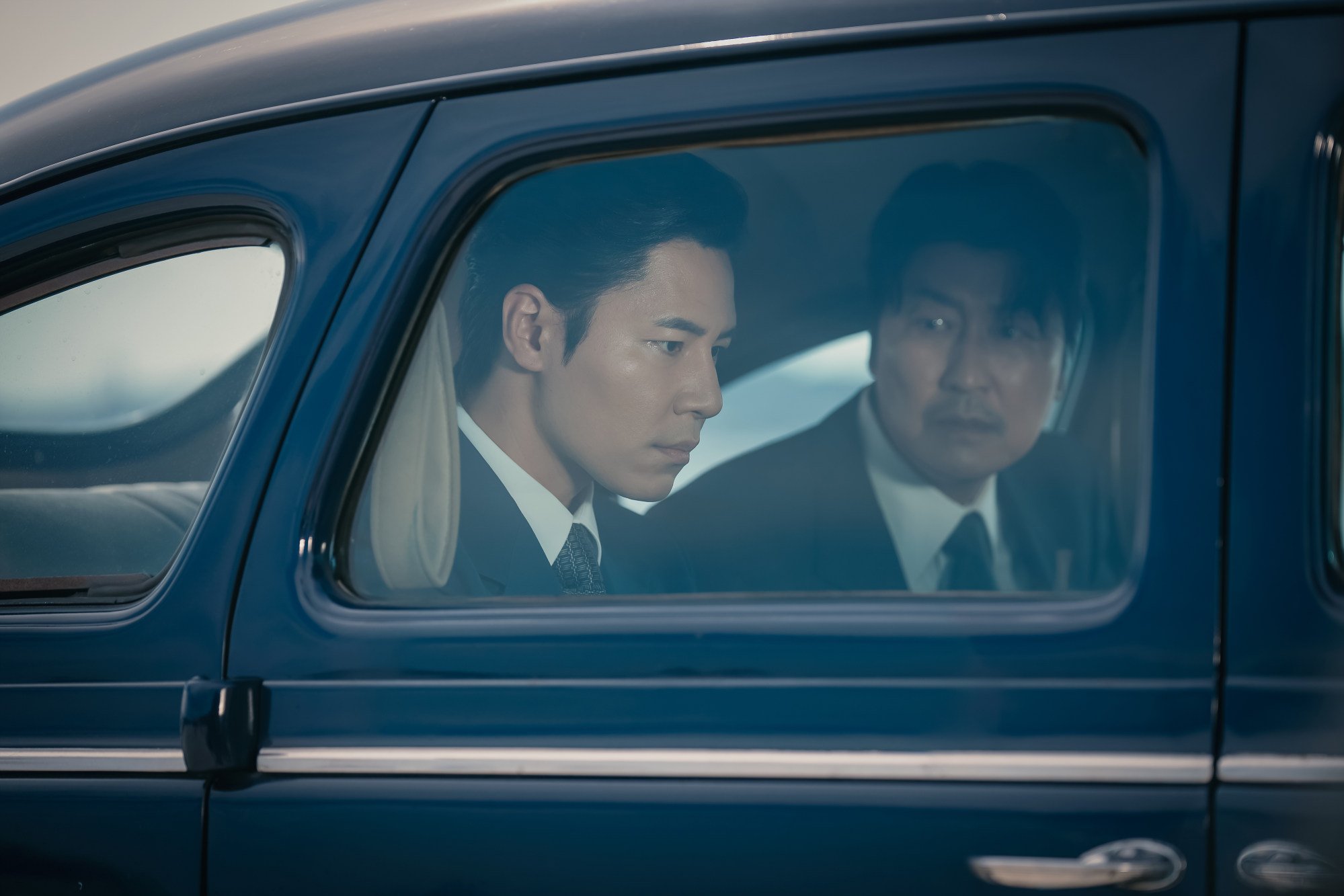Lead cast: Song Kang-ho, Byun Yo-han, Lee Kyu-hyung, Jin Ki-joo, Seo Hyun-woo
Directed by Shin Yeon-shik and presented by Disney+, this big-budget drama series evocatively recreates post-Korean-war Seoul, an era seldom seen on screen.
Bringing the full force of his avuncular charm to bear, Song plays Park Doo-sik, an influential operator who works behind the scenes bridging the criminal underworld and the public-facing political scene with his vast connections and pliable morality.
Doo-sik is better known by the nickname Uncle Samsik, which he adores and which refers to the reputation he built up during the war years, when he made sure that everyone had three (sam) meals (sik) a day. To this day, people know that if they are with Uncle Samsik they will never go hungry.
Song’s co-star is Byun Yo-han (Mr. Sunshine), who plays Kim San, an idealistic civil servant who dreams of turning South Korea into an industrialised nation and pulling its citizens out of poverty.
San has been working for years on an ambitious national redevelopment plan but is struggling to get ministers to pay attention to it, particularly as they are presently more concerned with the re-election campaign of President Rhee Syngman.

Doo-sik is aligned with the ruling conservative party and an influential business coalition, but he recognises raw talent when he hears San give an impromptu speech during a chaotic campaign event.
He tries to recruit San, promising that only he can help him realise his vision, and it soon becomes clear that San will have to choose between his dreams and his heart – he will have to give up either his redevelopment plan or Ye-jin.
Meanwhile, Doo-sik is in bed with the power-hungry assemblyman Kang Seong-min (Lee Kyu-hyung), who wants to cover up an assassination he was involved in years ago by having Doo-sik kill a co-conspirator. This is a slippery slope to be on for Doo-sik, who was also involved, and he knows it, prompting him to put his own secret plans into motion.

Until recently Shin was better known for his literary indie films, such as The Avian Kind and Dongju: The Portrait of a Poet, which he wrote and produced. Uncle Samsik, with its dense historical backdrop, has a literary sensibility similar to those films, and Shin uses the relationship between Doo-sik and San to leaven it.
Their uneasy alliance is founded on complex political realities, but what binds them together is a digestible metaphor – pizza.
Doo-sik tries to impress business cohorts with talk of pizza and American abundance, while San expresses a similar sentiment in his spontaneous speech. The only difference is that San, who studied in the United States on a scholarship, has actually tasted pizza.
“Did I create the world we’re in? Surely it’s the world that created me.” This is part of Doo-sik’s plea while he is being interrogated during the many flash-forward scenes that take place in the wake of a coup d’état attempt in 1960 – the first five episodes are otherwise set in 1959.
His words illustrate the show’s intention to explore the nature of necessity and its power to influence politics.

The series takes place during South Korea’s First Republic era (1948-60) but the story paints a picture of the kinds of power shifts that have plagued South Korea right through to the current Sixth Republic era that began in 1988.
At its best, Uncle Samsik presents opportunism and ideology as political bedfellows. In the 1960 interrogation scenes, the show cuts between San and Doo-sik. They have the same dress and haircut, but their eyes are worlds apart. Light reflects in San’s eyes, as his idealism continues to burn somewhere within him, while Doo-sik’s eyes are dark pits that reflect no light at all.
The series struggles to sustain this level of artistry as it meanders through lovingly rendered but familiar narrative beats.

Meanwhile Ye-jin, the show’s only notable female character, has so far been sidelined as a disappointing love interest who exists solely as a roadblock to the fulfilment of San’s idealistic ambitions.
Uncle Samsik is streaming on Disney+.

